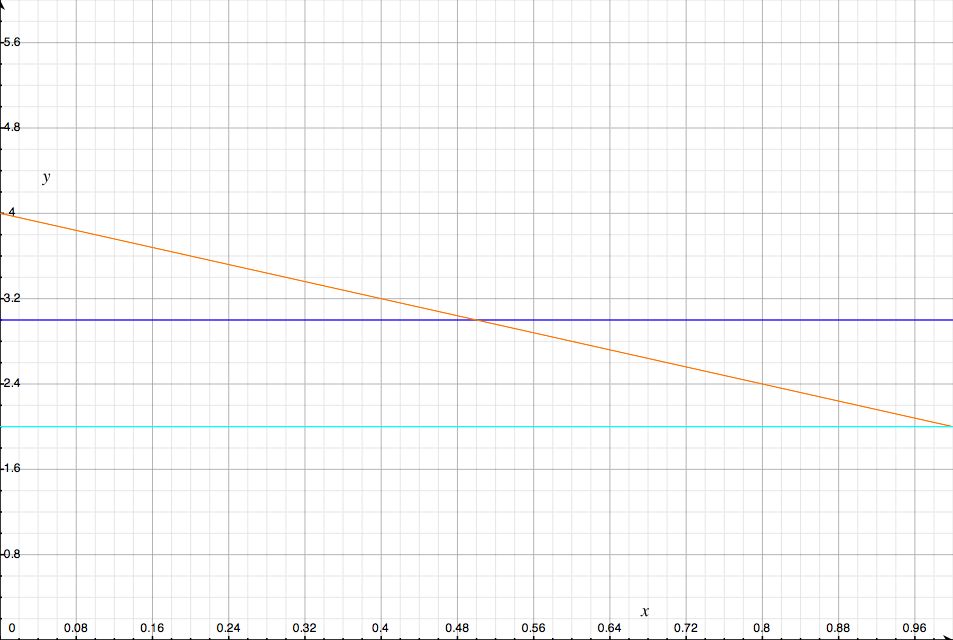I guess we just had nationals a couple weeks ago, and the results were very interesting. Of course, all the big name decks made appearances, and since I don’t play professionally, I’m actually very much out of the loop on what’s going on there. What I thought was interesting, though, was the metagame shift from one week to the next. While we saw a bunch of fae and elf combo decks doing well in the first round of nationals, we see that fae got severely hated out of the US nats finals (32 copies of great stable stag, 31 copies of volcanic fallout), while decks like jund seem to do a little better. Great to know, but perhaps not so helpful right now.
I think this is actually my first shot to see whether some of what I know will be useful. In the game theory class from Yale that I’ve been following, we’ve talked a lot about iterative deletion. The idea basically goes that we have some game. There are a set of strategies that are dominated by another. Therefore, we might assume that no one will play those strategies. With that new game, though, there are more strategies that no one will play, so we can eliminate those. Those ones are only strictly dominated if we assume that everyone else is rational. From those, we can eliminate even more, and maybe see it converge to something. This is very well seen in the “guess 2/3 of the average” game.
I skate over the subject because 1) I’ll cover it more rigorously if I think this can go somewhere 2) I’m feeling lazy right now and 3) because a very excellent article has already been written on a similar subject. John Beety wrote a great piece on how information about how other agents acts will affect your own decision. So if you know that most of the field will play deck X, you should play deck Y because it has a good matchup against that. A bunch of people might know that, though, so you’ll see the popularity of deck X be followed by a surge in deck Y. That’s the metagame shift.
That’s kind of where we are right now. I mentioned we had a shift just recently, and I was thinking that I might be able to actually apply it to the current metagame. If someone’s done this rigorously already, please let me know so I can save myself the effort. If not, though, I’d be willing to give it a shot. There are a lot of numbers to crunch, but I think that’s where my programming background will pay off.
This is where I very much need your help. As I mentioned, while I know what the decks do, I actually know very little about matchups. To be honest, I’ve never actually seen most of these decks played (so on a side note, if anyone knows anywhere where I can watch magic games, either videos or spectating online matches or something, please let me know. Right now, I just have a couple youtube subscriptions for that), so I really don’t know what deck beats what with what regularity. So that you can help me, I created a google spreadsheet that is openly editable that can just does matchups. The first page is the observed probability that the deck on the left column will beat the deck in the first row, given the numbers from this article. Let me know if these numbers are somehow skewed by low frequencies or if more data is out there. The second sheet is completely empty, where it would be really helpful if you could just write a sentence or two about what the perception (qualitatively) is about which deck should beat which, and why. I think I have the knowledge to do the analysis of the metagame; I just don’t have the data.
Hopefully, assuming it gets filled in well, I’ll be able to come back in the next couple days to a week about my findings. There’s a good chance that the analysis will just reinforce what everyone knows, but maybe there’s a surprise out there.

